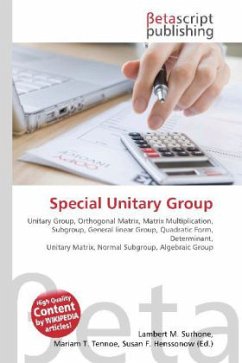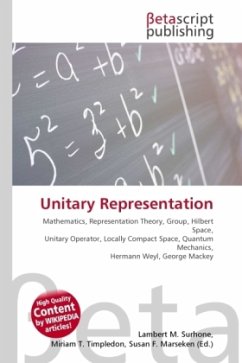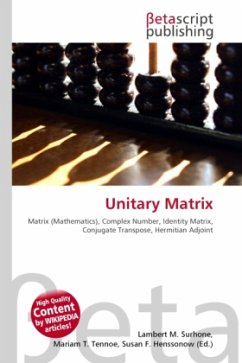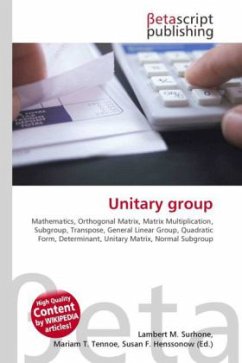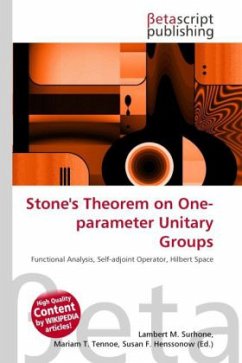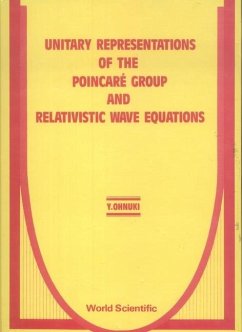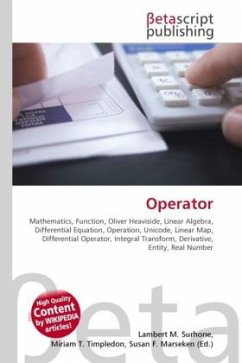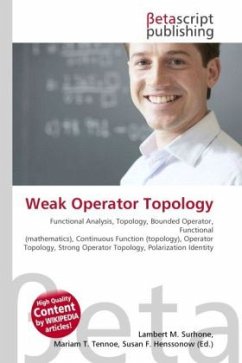
Unitary Operator
Versandkostenfrei!
Versandfertig in 6-10 Tagen
26,99 €
inkl. MwSt.

PAYBACK Punkte
13 °P sammeln!
High Quality Content by WIKIPEDIA articles! In functional analysis, a branch of mathematics, a unitary operator is a bounded linear operator U : H ? H on a Hilbert space H satisfying U U = UU = I where U? is the adjoint of U, and I : H ? H is the identity operator. This property is equivalent to the following: 1. The range of U is dense, and 2. U preserves the inner product ? , ? on the Hilbert space, i.e. for all vectors x and y in the Hilbert space, langle Ux, Uy rangle = langle x, y rangle. To see this, notice that U preserves the inner product implies U is an isometry (thus, a bounded line...
High Quality Content by WIKIPEDIA articles! In functional analysis, a branch of mathematics, a unitary operator is a bounded linear operator U : H ? H on a Hilbert space H satisfying U U = UU = I where U? is the adjoint of U, and I : H ? H is the identity operator. This property is equivalent to the following: 1. The range of U is dense, and 2. U preserves the inner product ? , ? on the Hilbert space, i.e. for all vectors x and y in the Hilbert space, langle Ux, Uy rangle = langle x, y rangle. To see this, notice that U preserves the inner product implies U is an isometry (thus, a bounded linear operator). The fact that U has dense range ensures it has a bounded inverse U?1. It is clear that U?1 = U?. Thus, unitary operators are just automorphisms of Hilbert spaces, i.e., they preserve the structure (in this case, the linear space structure, the inner product, and hence the topology) of the space on which they act. The group of all unitary operators from a given Hilbert space H to itself is sometimes referred to as the Hilbert group of H, denoted Hilb(H).



